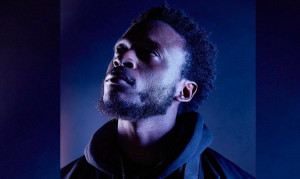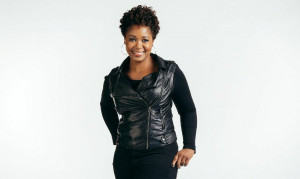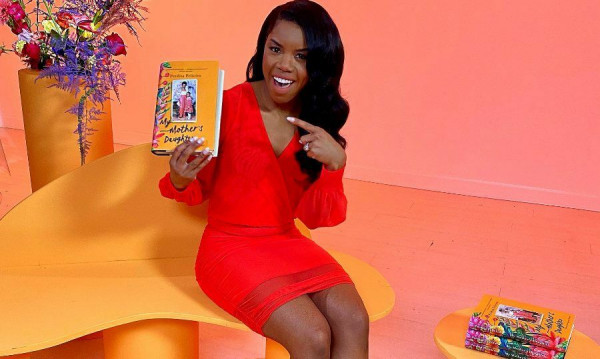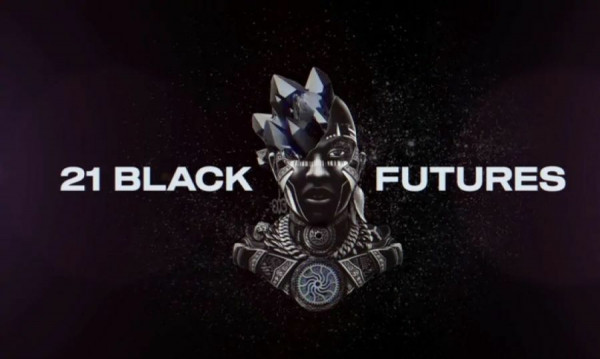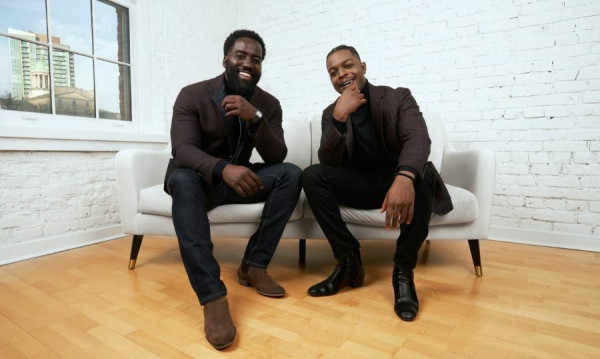Gossett was the first African American to win an Oscar for Best Supporting Actor for An Officer and a Gentleman (1982). He won an Emmy for playing Fiddler in Roots (1977) and recently (July, 2020) received his 8th Emmy Nomination for his supporting role in the HBO series Watchmen. Let’s take it way back to the beginning of Gossett’s career when at the young age of 17, the Brooklyn, New York-born actor made his stage debut in "Take a Giant Step," which was selected as one of the 10 best Broadway shows of 1953 by The New York Times. Unwilling to rest on his artistic accomplishments, Gossett founded The Eracism Foundation in 2006 which is dedicated to eradicating racism.
Gossett executive produced and starred in his latest film project, The Cuban (release July 31, 2020), a musical journey of love and friendship. Gossett plays Luis, an elderly Cuban musician, seemingly trapped within the grips of dementia. While spending his remaining years in a nursing home, Louis develops a friendship with a nurse which reignites both their love of music and life.
In this online interview Mr. Gossett takes the conversation in his own direction, reminiscing about growing up during the depression alongside kids from varying cultural and racial backgrounds. Toward the end of the interview, Mr. Gossett is visibly shaken by a painful memory and recounts visiting Beverly Hills for the first time and how eager he was to take in the sights and explore his new surroundings as was the norm for many Southern California visitors. He set out in his rental car to tour the mansions of the rich and famous but not more than a few minutes into that innocent tour Gossett found himself stopped and handcuffed to a tree by Beverly Hills police… for 3 hours. During the terrifying 180 minute public confinement just steps from his hotel, police went to work trying to ascertain who Gossett was and why, in 1966, would a 30-year-old Black man be driving around Beverly Hills? Gossett survived the state-sanctioned abuse of authority but he has never forgotten the humiliation. In fact, it could be in part, what drives him to succeed. No doubt through the years that followed the incident Beverly Hills Police now know who the Black man they cuffed to a tree is; Mr. Louis Gossett Jr., an extraordinarily accomplished actor, social activist and enduring human.
Congratulations to you on your Emmy nod, just announced July 28, for Watchmen!
Thank you.
Sir, the only time you stopped creating, stopped acting was right after you won the Oscar for An Officer And A Gentleman, in 1982, it was hard for you to get work for about a year.
They couldn’t find any work for me. They didn’t want to pay me. So, I look at all those things that happened to us as a result of our success. It’s a character-building thing. We have to go back to point one, realizing that we were the first. We learned certain lessons and whatever happens, it’s a learning curve because when man makes a decision to change our life, that’s taking away God’s power and it takes a minute for us to learn that but whether we like it or not God is always in charge, we never will be.
For a moment there you did not have this philosophy, you went down a different path. Anti-black racism almost did you in. There was so much despair, so much anger, you turned to drugs and then you turned it around. Talk about what made you turn your life around.
See now, the bottom line rule is that we cannot survive without one another’s contribution to the whole. That’s how we started in Africa, go back to the original theory and encourage everybody not to be afraid not to be angry but to get together around the table of diversity and together save mankind.
What wisdom would you impart on younger actors who are coming up behind you? You worked with Canadian actor Lyric Bent, how would you advise him to carry on his career so he could have a long and prestigious career such as yours?
Well, he’s a very intimidating, very powerful looking man so it’s all in his face and there’s a soul, a softness in him, big brother. He’s got a 360 degree way to express himself. Sometimes when you want to express yourself with anger, you go the other way. So as his mentor I would say, sometimes, you have to go the other way. You see him on the screen he’s (makes a startled look), maybe it’s time to go the other way. Let the moment run you instead of you running the moment.
What do you think about how Hollywood and the entertainment world has evolved since 1983 when you won the Academy award? How has it evolved for Black artists?
It took a minute, it took a minute because, uhm… especially for ones who are our best friends. I had some very good white best friends (Paul Newman, Jimmy Vaughan) but there was a little loophole in there and I don’t blame them because they had a wonderful lifestyle, I’m going to make you do what you can do, like Stanley Cramer and Sydney Portier. I’m gonna let you do what you do, give you the part, but I’m still the boss! I’ve gotten this from some white friends, deep friends who admitted they did not want to lose control, lest they lose everything. That’s an honest thing.
I had a childhood that took place post-depression, nobody had any money but children are children. In Brooklyn I was raised by my parents and other adults. If my parents did not get home in time for dinner, I could go next door and get some gefilte fish, lasagne, corned beef and cabbage, I could get some menudo, a Philippine dish, as well. So, when we aspired to leave that, when we got older, we may have to take that with us when we aspire because that was how simple happiness was.
You talk about old Hollywood not wanting to lose power or share power, I think about The Cuban, your latest film, and you are the executive producer and you star in the film and I can’t help but think you saw an opportunity and wanted to play a role behind as well as in front of the camera.
These wonderful young people, Ana (Golja), back in the 40’s she’d be Judy Garland! She did all the music, acting and writing. She’s magnificently talented. Then there’s Sergio (Navarretta), my goombah! He followed me around, across America, I realized they were serious and when I let them talk, I realized I wanted to do what Robert DeNiro did in Awakenings. Robert DeNiro did in one take, from normal to Alzheimer’s and back. I was jealous of how DeNiro created a character from scratch. It has nothing to do with getting Oscars, it’s about climbing a ladder, an artistic ladder.
Would you say that Hollywood has no choice, it’s happening, there’s space being made for Black artists and created by Black artists?
Yes, yes it is happening. There’s intelligence. They know somewhere along the line that we can’t do without one another. It’s going to take all of us to save all of us. I see it in sports, movies, I see it in business. I like seeing you in front of the camera, rather than standing behind someone else. You can go as far as you want to go. What a wonderful thing to still be alive to see.
Black folk have started to enter into that realm of executive producing, starting their own production companies. This is a field where you can see a lot of change, stories can be told… You can be responsible for what you put on the screen now.
Right.
100% responsible. Even Roots was 85% (Black) responsible. We’re getting there, we’re getting there. I’m happy to be able to witness that emergence. It’s non-violent. It’s love.
Yes, it’s an expansion. So, tell me, you started a movement called Eracism.
It takes mankind to save mankind. So we artists have to get rid of the cobwebs that separate us from… some people call it God, some people call him Allah, some people call him Jeshua, but it’s not us. We have to climb that ladder and get rid of the things that keep us from getting a pure message from that powerful thought. So we get out of the driver’s seat and we do the things that help up get close to that message, it’s meditation, we eat properly, we have a group of things to do that keep us pure so that when we get the message it’s real so we have lessons and that started in Africa, in the tribes. Whatever they did was for the benefit of the whole tribe. If a child did something wrong, he’d have to pay for it and another child would see that and he wouldn’t do it!
Did you think, Mr. Gossett, that terrible time way back when you were handcuffed to a..pole
...to a tree, a palm tree.
...for 3 hours. It must have been the most humiliating and infuriating experience. Did you ever think that all these years later, you would have won an academy award, have an Emmy and be this cultural and artistic powerhouse now?
I...I keep thinking about time...it was the most embarrassing (tears), low self-esteem at that age… Right across the street was the hotel and uh, I had no idea, I had not seen racism. I went to the south, went to the farm, came back strong as an ox. My friends sent for me in California, people I grew up with. William Morris agency picked me up in a limousine and I felt wonderful! I got a rental car, a Ford Gallaxy 500, convertible, egg white with red interior. I put Sam Cook on as loud as I could… I got a map to movie stars homes from the hotel. I saw Meryl Olbright’s castle, then I got pushed up against the fence and then they handcuffed me to a tree for 3 hours. Now I have a chance to think, maybe I should have played basketball, maybe I should have been a bus driver...so they let me go, the hotel manager said everything’s ok, you just have to know how to behave. I said how am I supposed to behave? I called my parents and my agent who was my best friend and he said what are you going to do? I said, I guess I’m going to go to work, he said, “that’s what I thought you were going to say.” Get in your car, get up there at 7 in the morning suck in your breath and do the best job that they have ever seen.”
What’s next for you?
By the way, brothers and sisters, you see these tears, there’s no weakness here. Now, what’s on my mind is a new contract between the NAACP and CBS. They have made an enormous deal and my mind went “beep”, “beep”! What to do, ok? We are losing a lot of our Congressional Black Caucus members, let’s put a television series together. The stories that we can tell from a John Lewis to Andrew Young, what’s happening behind closed doors, it’s a nice little message.
Final question, if you can describe for me your artistic career so far, how would you describe it?
Who would have thought that someone like me, this bald-headed guy, this guy with the Adam’s Apple who walked into Hollywood and got handcuffed to a tree! There’s no such thing as impossible. Anything happens to you don't get upset, just keep on going. You go for a ten you get a five, it’s five more than you had when you started. You deserve to be the best that you can possibly be. Don’t let anything get in your way, including yourself.
Thank you for your time, your wisdom and thank you for the example that you’ve shown us. You’ve shown us you can be down but not out.
Absolutely. That’s my job, that’s my job. I’m the elder.
The Cuban is currently screening at drive-in theatres across Canada. Check out thecubanmovie.com for listings near you.
Rosey Edeh spent a decade (2005-2015) bringing the latest entertainment and pop culture news to the masses as a senior reporter on Global TV’s ET Canada. Building on her vast experience as a news anchor and TV personality as seen on CNN, MSNBC and Global News, Rosey has founded an award-winning production company, Micha Muse Media Inc. Movies, plays, art exhibits, good books and all things track and field get this journalist, filmmaker and three-time Olympian excited for life. Human connection, struggle and triumph, maintain Rosey’s mission to tell meaningful and even entertaining stories that hopefully offer readers insight, depth and even a little levity. Twitter: @roseyedeh
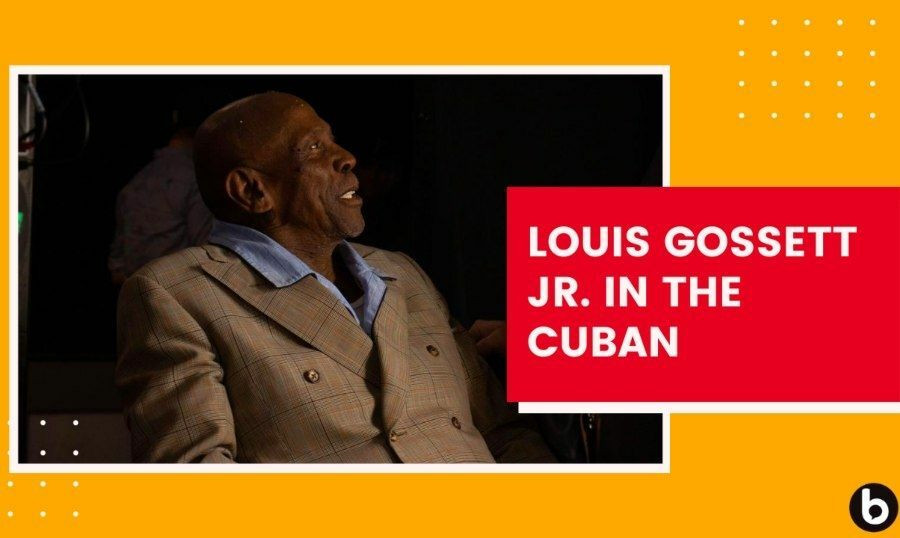
 By
By 





